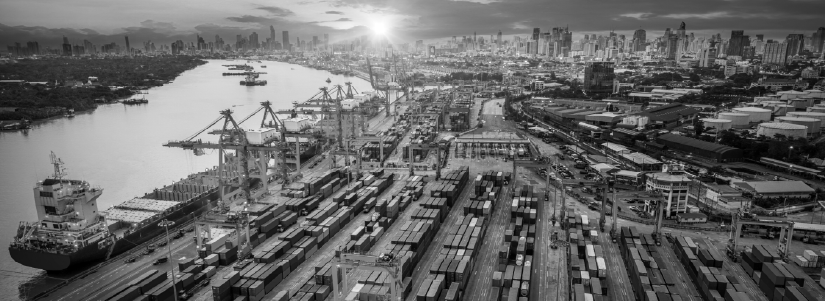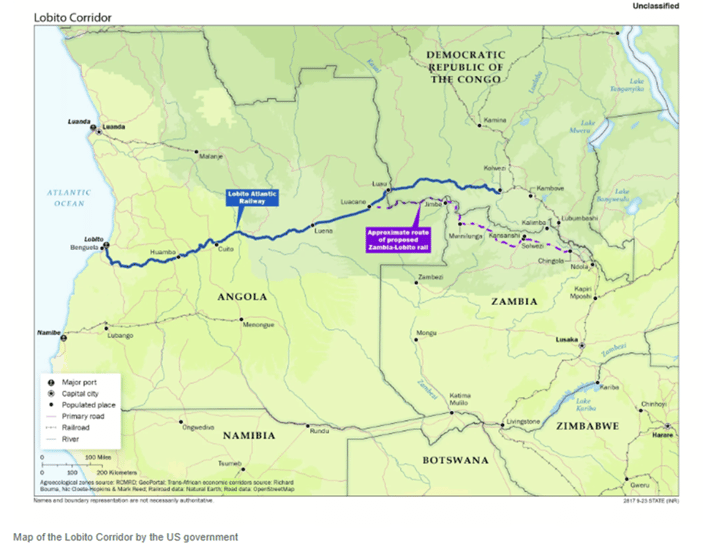Logistics In Africa
Tips & Tricks • 4 min read • March 6, 2024 • Written by: Natasha Osborne

Last month Storm Procurement attended the ‘Investing in African Mining Indaba conference’ and the topics that were discussed made us reflect on how the industry is adapting and how these changes can influence logistics. This week we thought we’d investigate one of the key themes that was discussed, the logistics and transport industry, specifically in the African region. Understanding how the development of infrastructure, particularly roads and rails is fundamental to the economic benefits for the mining, manufacturing, and construction industries. As well as now improving transportation networks, can lead to increasing export capabilities, increase of revenue and creating job opportunities.
Africa presents fantastic opportunities for the mining, energy, and construction industries with a significant share of critical minerals. The African continent has been a key player in the shipping industry with its natural resources and strategic location. However, in recent years this has been impacted by the pandemic, commodity prices and increasing geopolitical tensions, which has impacted Africa’s export market and the importation of goods.
Recently here has been a global shift focusing on sustainability, in particular, renewable energy. Mining, energy, and construction industries are focusing their efforts on extracting minerals that benefit the production of renewable energy sources, such as electric vehicles. Logistics partners are setting goals that focus on reducing carbon emissions, investing in cleaner technologies, and optimising routes that reduce fuel consumption, as well as exploring cleaner alternative fuel options.
Africa currently has the world’s youngest and fast-growing population; this presents an opportunity to develop infrastructure to enhance the investments from other countries that can boost the logistics industry. Modernising the ports in African countries such as Egypt, Nigeria and Kenya who have launched large-scale port projects, to accommodate for larger vessels and increase their ability to handle larger volumes of cargo.
Lobito Atlantic Railway
The Lobito Atlantic Railway is an example of how the continent is enhancing its logistics. The railway will connect the southern Democratic Republic of the Congo (DRC) and north-western Zambia via the Port of Lobito in Angola, also known an as the Lobito Corridor. It creates a strategic route to export for both Zambia and DRC to reduce the journey time, linking these two countries to the port for goods to be imported and exported. A joint statement from the European Union and the United States at the G20 in India demonstrated their support for the development of the railway. ‘’We are excited to join forces to generate economic benefits with our partners in Angola, the Democratic Republic of the Congo and Zambia.’’
Both the EU and US ‘welcomed the recent commitment’ and support the partnership amongst the three African countries to accelerate the development of the corridor, as they believe this will ‘upgrade critical infrastructure across sub-Saharan Africa’ and ‘unlock enormous potential of this region’. There is hope that this could influence other regions to consider a similar collaboration that could build other ‘strategic corridors’ around the world to enhance the logistics industry further.
The partnership will combine financial resources, industry expertise and knowledge to accelerate the corridor development, as well as investments in digital access and agricultural value chains, which will encourage competition in the region. ‘The three African countries signed an agreement for a corridor governance instrument on 27 January this year called the “Lobito Corridor Transit Transport Facilitation Agency (LCTTFA) Agreement”. This creates a framework for the three SADC Member States to jointly develop harmonised corridor laws, policies, regulations, and systems including infrastructure development in a coordinated manner.’ This will improve growth and cross-border trade, after ten years of negotiations it was considered a ‘historical agreement’ by the Director of Infrastructure, Mapalao Rosemary.
This partnership also benefits the EU and US as The Lobito corridor will connect Zambia, Angola, and the DRC, boosting the circulation of goods as well as reducing the average transport time for goods, which in turn will lower logistics costs and reduce the carbon footprint of exporting metals, agricultural goods, and other products from the region.

What is the future of African logistics?
Advancements in technology have proven to aid the development of many industries and logistics is no exception. The adoption of digital technologies will be key to streamlining port operations and increasing the efficiency of the movement of goods. This helps to reduce costs and benefits the supply chain. The development of technology improves the logistic systems that provide customers with real time tracking details, with this data they can provide their clients with updates on their order and make informed decisions should any unforeseen issues occur, to smooth out the supply chain and limit further disruption. Creating corridors such as the Lobito Atlantic Railway connects ports, optimises routes which reduces the time taken for the goods to travel. So, it will be interesting to see where the next partnership will be formed, and which counties will create a similar corridor.
We hope you enjoyed reading this week’s blog and learnt something new. Make sure that you are subscribed to our latest news, so you don’t miss out on any of our new posts. Feel free to share the blog with others who may enjoy it too. Why not leave a comment in the section below and let us know what you’d like to read about next time.
Related Articles

Tips & Tricks
Biomining

Tips & Tricks
Mining - Solar Panels

Industry Insights
Current & Future Oil Prices
Don't Miss Out On Our Updates
Sign up and Join Our Newsletter Today
